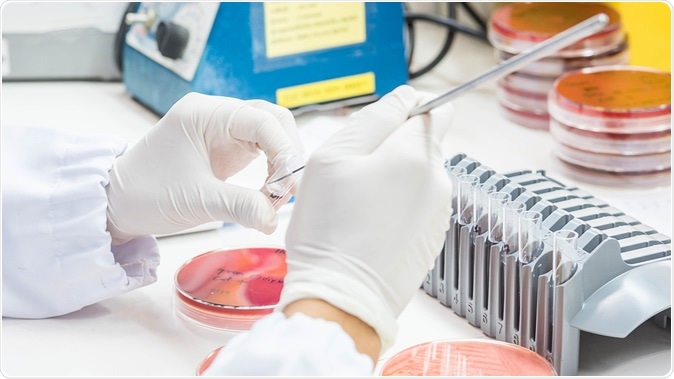According to a new report from the World Health Organization (WHO) released yesterday, antibiotics development at present is not at par with the rising antimicrobial resistance worldwide and soon the demand may outgrow the supply. The WHO warns that this could mean that pathogens causing these infections could mean a great threat for humans in the coming years.
The report that came from a team of physicians, microbiologists and experts who deal with resistance of antimicrobials among pathogens, says that it is expected that in the coming 5 years, around 10 new antibiotics could hit the market if all goes well. This is woefully inadequate to deal with the developing antimicrobial resistance among pathogens worldwide. Of these potential new candidate drugs that are being currently tested in the clinical trials, most of them are only modifications of the presently used antibiotics and are thus not truly innovative. They are likely to fail where the older ones have failed, explain the experts and are only short term supports.

Image Credit: Sirirat / Shutterstock
The authors write that these do not tackle the issue of “critical resistant bacteria” including “multidrug and extensively drug-resistant Gram-negative pathogens”. The latter are typically those that are resistant to killing by more than one antibiotic making them superbugs. Authors call for more research and development of new innovative drugs from different classes that could fight these pathogens effectively.
The WHO report looked at the drugs that were being developed and found a total of 51 antibiotics, some of which are combinations. They also found 11 biologicals that could potentially be used for treatment of serious bacterial infections. Some of these are being tried in clinical trials as per latest analysis in May 2017 promising success.
WHO has a priority pathogen list. These are microbes that pose urgent health threats to large populations worldwide and thus the WHO focuses on development of drugs and antibiotics against these. The latest list was published February this year. The microbes on that list include;
- Carbapenem-resistant Pseudomonas aeruginosa
- Carbapenem-resistant Acinetobacter baumannii
- Carbapenem-resistant extended-spectrum beta-lactamase (ESBL)-producing Enterobacteriaceae
These are resistant to multiple antimicrobials and aare also deadly. They spread rapidly and are difficult to contain. Others on the list include;
- Staphylococcus aureus
- Salmonella
- Neisseria gonorrhea
- Shigella
Of these new antibiotics that are in the pipeline, the WHO analysis finds that only 12 are active against the most critical priority pathogens. Only two of these have the potential to kill more than one of these microbes. More discouraging news is that some of these drugs are in the Phase 1 clinical trials where their actual effectiveness is yet to be tested. The only antibiotic that showed promise against all of these critical pathogens include cefiderocol - a siderophore cephalosporin that can break into the outer shell of gram-negative bacteria.
The report adds that 16 of the antibiotics and biologicals that are in the pipeline can deal with methicillin-resistant S aureus (MRSA). There are no agents that can kill vancomycin-resistant enterococci or fluoroquinolone-resistant Salmonella. Of the 51 new agents, only 8 are innovative new antimicrobials. Further of the 11 bilogicals being developed, only 2 are active against the most important priority pathogens. The other 9 work only against S aureus and Clostridium difficile. There are no drugs being developed to combat drug-resistant tuberculosis (TB) that can become a global health problem in no time.
Dr Tedros Adhanom Ghebreyesus, Director-General of WHO in a statement said that, “Antimicrobial resistance is a global health emergency that will seriously jeopardize progress in modern medicine” and there is an, “urgent need for more investment in research and development for antibiotic-resistant infections including TB, otherwise we will be forced back to a time when people feared common infections and risked their lives from minor surgery.” Dr Suzanne Hill, Director of the Department of Essential Medicines at WHO urged pharmaceutical companies to “focus on new antibiotics against certain types of extremely serious infections”.